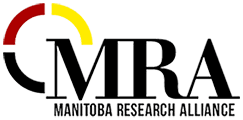View Publication
This paper explores the economy, the health status, and particularly the issue of food sovereignty of Garden Hill First Nation (GHFN), a remote community located 610 kilometers northeast of Winnipeg, Manitoba. Similar to many northern communities, in GHFN the history of colonialism, assimilation and the legacy of residential schools have shaped the egregious conditions of poverty that many on-reserve residents struggle with every day. GHFN’s formal economy is under-developed and among many other poverty-related issues the residents are confronted with high rates of unemployment, a housing crisis and high food prices. Moreover, the loss of culture and often ties with family have made it extremely difficult for the new generation to preserve traditional livelihoods that focus on hunting, fishing and gathering, this way undermining the community’s autonomy in providing food to its residents.
In this paper the economic and health profile of the community, including the amount of government spending on diabetes and welfare will be presented. By putting Meechim Inc. in the context of the community’s economic and health problems and needs, the SE’s goals (reduce diabetes, create more jobs) will be assessed. Moreover, the enterprise’s funding structure, governance, community engagement, administrative, financial and other barriers will be discussed. The potential of Meechim Inc. to pave the road towards food sovereignty and self-reliance will be examined.
Grant: Partnering for Change: Community-Based Solutions for Aboriginal and Inner-City Poverty - 2012-2019
Category: Community Economic Development
